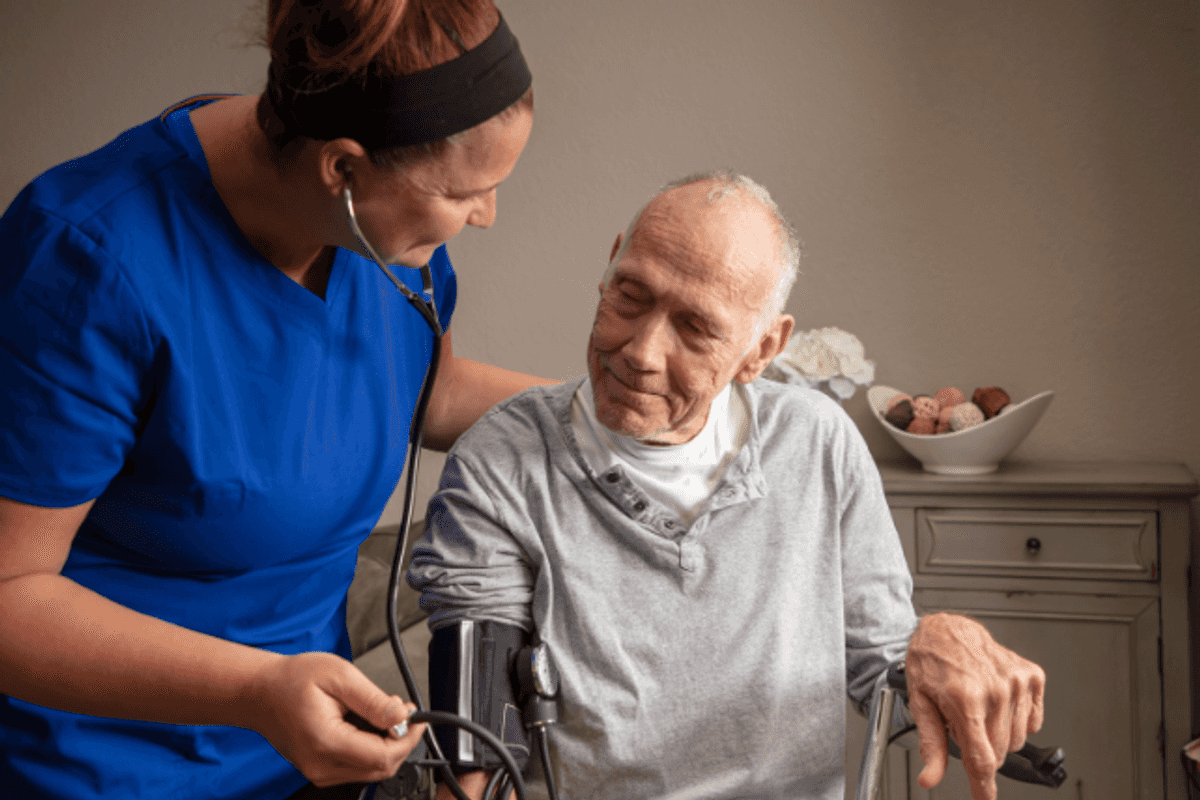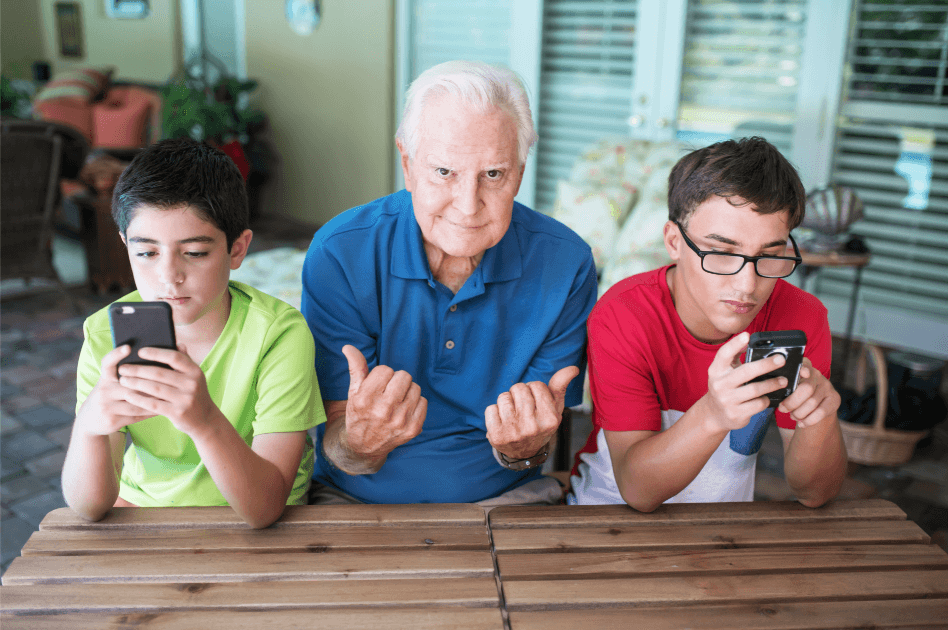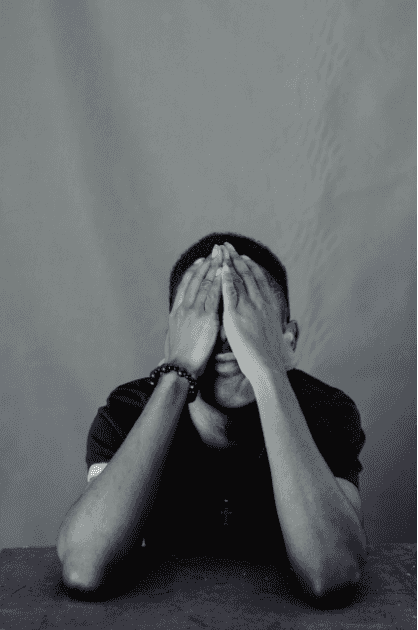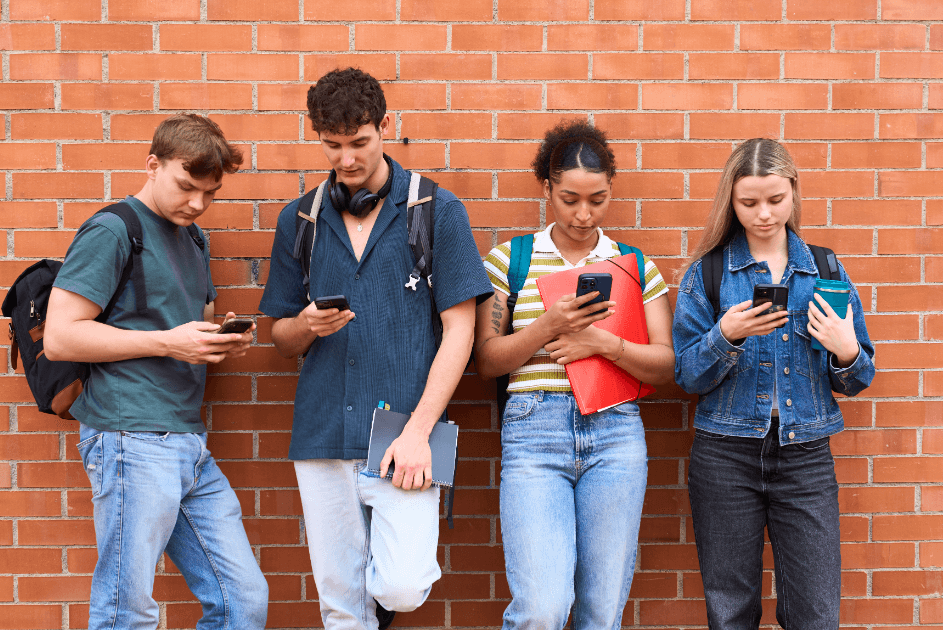He was always on his phone. Then he made this incredible change you can try too.
10 simple steps to break bad habits and take back control.
I had fallen into a dangerous loop. I knew I was doing it too much.
It was easy to justify checking my phone constantly — especially since I work on a newsletter that collects valuable ideas from around the web. I was constantly browsing and searching, all day, every day.
So I did something about it.
I didn’t take a "digital detox" and completely abandon social media for a brief period of time because that feels more like a temporary treatment than an actual solution. I might have felt better for a couple days, but once I returned from my detox, I assume everything else would have gone back to "normal" — and normal wasn’t working for me.
I set out to change my phone habits and create a simple set of rules to limit the negative (and amplify the positive) impacts of when and how I use my phone.
What I came up with was this set of 10 guidelines to ensure I used my phone with more intention. They made a huge difference in how often I check my phone, what I get out of it, and how I feel about it.
1. I stopped checking my phone in my car.
I never really checked my phone while driving — it's dangerous (and you should definitely stop that whether you try out these rules or not), but with this rule I also outlawed checking it at stoplights, in heavy traffic, or any time I was in my car.
I discovered how often I was checking my phone in the car previously, how unnecessary it was, and how it actually made things like sitting in traffic more frustrating than they otherwise might be.
2. I stopped checking my phone during TV commercials.
I hate commercials as much as the next guy, and sometimes social media seems like it was invented to fill up those two-minute interruptions — no wonder I checked my phone at every TV timeout.
But when I picked up my phone during a commercial, I rarely put it back down when the show came back on. It captured my attention and drew it away from what I actually wanted to watch.
To help me stick with this rule, I implemented another one…
3. I kept my phone across the room when I wasn’t using it.
Turns out the only thing stronger than the allure of social networks is the allure of not getting up off the couch.
The further my phone is from me, the less likely I am to randomly check it.
4. I turned off all notifications.
If we enable them, we are asking our phones to interrupt us. This interruptions can be unnecessary and poisonous. Now, there are no dings when somebody likes my Facebook post or sends me an email.
5. I chose an end point for each random surfing session.
I believe in the value of "getting lost on the internet" and continue to do so. But now, when I pick up my phone to do some random surfing, I set an end point for the journey before I start. For example, when I decide to browse Twitter, I also consciously decide to do so for just 20 minutes.
It protects my time and ensures a little surfing doesn’t turn into a time suck, but it also creates a space for me to explore and discover new things.
6. I stopped checking my phone while in line.
There’s nothing inherently wrong with this, but it’s definitely not an intentional use of your phone.
By following this rule, I send a message to myself that I’m in control of my attention as opposed to ceding it to my phone any time I’ve got a moment to spare.
7. I created a framework for my day with buffers at the beginning and end of it.
If the first thing I do when I wake up and the last thing I do before going to sleep is to check my phone, what kind of message does that send to my brain about the role of my phone in my life?
One of the simplest things I did to switch up my phone habits was to create a buffer zone — in the morning and at night — when I don’t use my phone.
I don’t pick up my phone until I’ve finished breakfast (which typically means I’ve been up for at least 30 minutes) and stop using my phone at least an hour before going to sleep.
8. I put my phone away after I post something on social media.
After I post an article or a tweet or a Facebook status, I’m going to be tempted to check and see whether people like and share it over the next hour or two.
To counteract this pull, I made it a rule to log off after posting something and not check my phone for a while. It’s a conscious effort to avoid getting drawn into my phone in an unnecessary usage pattern.
Likes, shares, or interactions will still be there when I check back in, and I don’t need to follow the action in real time.
9. I stopped repeating the cycle.
By the time I went through checking a couple of email addresses, my Twitter, Facebook, Instagram, and Medium accounts, enough time went by that I felt the urge to go back to the beginning of the cycle and check them all again to see what was new since I last checked.
Obviously, that’s not a great habit.
I created this rule, which means I go through the cycle and check each platform once per phone-use session, and when I’m done, I’m done.
10. I recognized it’s a work in progress.
One of the reasons I don’t like the concept of a full digital detox is because it’s an all-or-nothing scenario , and I don’t believe that’s how we ultimately create positive, lasting change.
My effort to be more intentional with my phone hasn’t been perfect, but it has helped me start to make lasting changes in my habits.
Like all things, it’s a work in progress. That’s OK. The point is to head in the right direction and learn along the way — and that’s exactly what these rules helped me to do. I hope they help you as well.
This article originally appeared in the "For the Interested" newsletter, a weekly collection of ideas to help you learn, do, and become better. It is reprinted here with permission.







 A terminally ill woman in her hospital bed. via
A terminally ill woman in her hospital bed. via 
 Family baking fun in the kitchen.
Family baking fun in the kitchen. Three generations smiling by the sea.
Three generations smiling by the sea.
 A grandpa with his grandsons on their smartphones.
A grandpa with his grandsons on their smartphones.  Young woman crying while holding her phone.
Young woman crying while holding her phone. Boy with his head in his hands.
Boy with his head in his hands. "A Fair Puritan" by E. Percy Moran, 1897.
"A Fair Puritan" by E. Percy Moran, 1897. Kids glued to their phones.
Kids glued to their phones.
 Katie's skin condition made it hard to attract a rescuer. Courtesy of
Katie's skin condition made it hard to attract a rescuer. Courtesy of  Katie's potential for love is so clear. Couresty of
Katie's potential for love is so clear. Couresty of